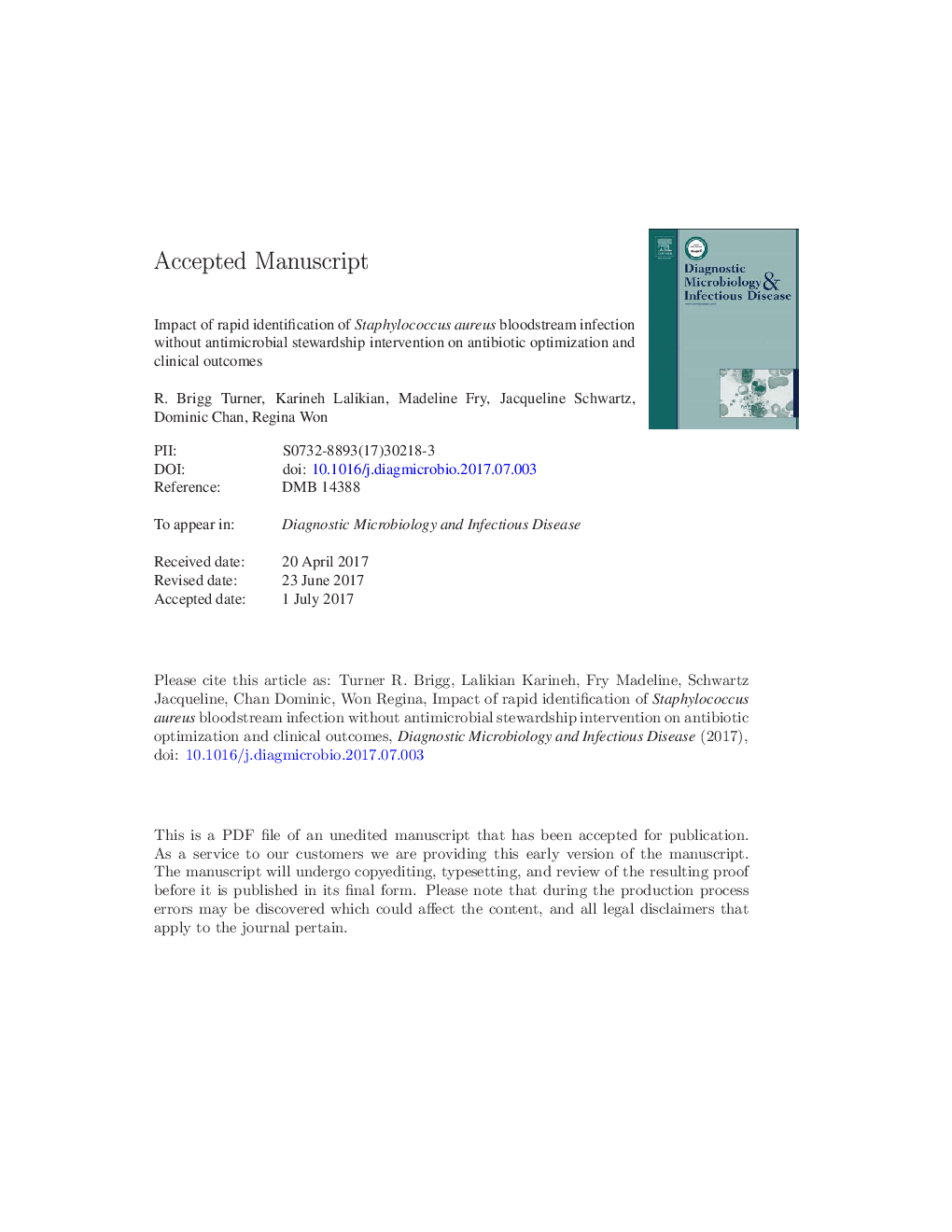| Article ID | Journal | Published Year | Pages | File Type |
|---|---|---|---|---|
| 8737408 | Diagnostic Microbiology and Infectious Disease | 2017 | 27 Pages |
Abstract
Few studies have evaluated the clinical impact of polymerase chain reaction (PCR) for Staphylococcus aureus bloodstream infections in resource-limited settings that lack direct antimicrobial stewardship intervention. This retrospective cohort study compared patients with standard microbiological identification (n = 343) to those with additional identification by (PCR) (n = 130). Time to initiation of optimal therapy was similar between groups but substantially shorter in the PCR group for those infected with methicillin susceptible S. aureus (median 40.0 h vs. 28.3 h, P = 0.001). After controlling for confounding factors including infectious diseases consultation, the PCR group had a shorter time to initiation of optimal therapy by 9.7 h (95% CI 4.3-15.0 h). Clinical outcomes were similar in the non-PCR and PCR groups. While time to initiation of optimal therapy was shorter in the PCR group, greater reductions may be realized through additional education, direct antimicrobial stewardship intervention, or additional clinician notification.
Related Topics
Life Sciences
Immunology and Microbiology
Applied Microbiology and Biotechnology
Authors
R. Brigg Turner, Karineh Lalikian, Madeline Fry, Jacqueline Schwartz, Dominic Chan, Regina Won,
